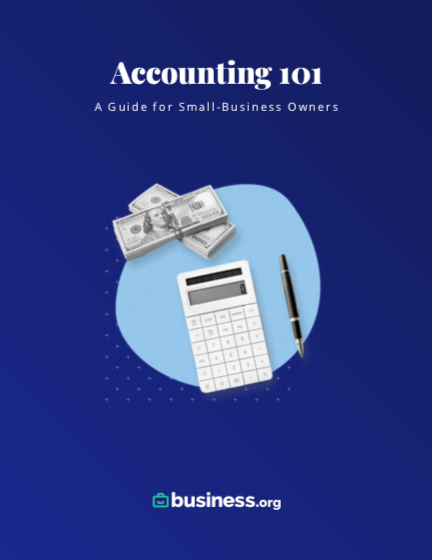We are committed to sharing unbiased reviews. Some of the links on our site are from our partners who compensate us. Read our editorial guidelines and advertising disclosure.
The 9 Best QuickBooks Alternatives in 2025
Data as of 5/12/23. Offers and availability may vary by location and are subject to change.
*Available only for businesses with revenue under $50K USD annually. Paid plans starting at $15.00/mo. when billed annually.
**Current sale price: 90% off for three mos. or 30-day free trial. Offer available for new customers only.
The bottom line: Xero is our favorite affordable alternative to QuickBooks Online. Starting at just $13 a month, it offers a series of perks QuickBooks Online notably lacks, including free unlimited users, excellent 24/7 customer support, and inventory management with every plan.
Xero also syncs with more third-party apps than QuickBooks Online—including more than a dozen payroll platforms. Xero's seamless integration with Gusto, OnPay, Paychex, and more makes it the best QuickBooks alternative for payroll that works in sync with your bookkeeping.
Of course, Xero has downsides, especially its plan-limited billing and invoicing. If you want a completely free alternative with no invoicing limits, Wave Accounting could be a better QuickBooks alternative for you than Xero.
- : Best overall
- : Most affordable
- : Most comprehensive
- : Best for freelancers
- : Best user experience
Compare the best QuickBooks alternatives for small businesses
Data as of 5/12/23 Offers and availability may vary by location and are subject to change.
*Available only for businesses with revenue under $50K USD annually. Paid plans starting at $15.00/mo. when billed annually.
**Current sale price: 90% off for three mos. or 30-day free trial. Offer available for new customers only.
Xero: Best overall
Data as of 5/12/23. Offers and availability may vary by location and are subject to change.
At Business.org, we adore Xero: in a line-up that includes QuickBooks Online, Xero is still our top pick for the best overall small-business accounting software.
Why do we love Xero so much? It tackles all the typical accounting tasks, like generating financial documents, syncing with bank accounts to track your business's numbers, and sending online invoices. Plans start at $13 a month, and pricier plans for bigger businesses include features like project management and multi-currency support.
Additionally, Xero syncs with even more third-party business apps than QuickBooks Online—which makes it the best choice for employers who want payroll software that syncs with their accounting solution. Both Xero and QuickBooks Online integrate with SurePayroll, OnPay, Gusto, and Paychex. But unlike QuickBooks Online, Xero has a dozen other payroll integrations suitable for all business types and sizes. (For reference, the other QuickBooks alternatives on our list sync with, at most, one third-party payroll provider: Gusto.)
So does Xero even have drawbacks? Well, while Xero's plans aren't limited by user numbers, they are limited by how many invoices you can send and bills you can enter a month. For instance, with the $13-a-month Early plan, you can send only 20 invoices and enter only five bills. That limit probably won’t be enough for midsize businesses, or even for many small businesses. Instead, those businesses should scale up to the $37-a-month Growing plan (or, for expense tracking, the $70-a-month Established plan.)
And for obvious reasons, Xero doesn't integrate with QuickBooks Payroll. If QuickBooks Payroll is your payroll solution of choice (it's excellent, so we wouldn't blame you if it is), opt for QuickBooks Online over Xero.
Zoho Books: Most comprehensive
Data as of 5/12/23. Offers and availability may vary by location and are subject to change.
*Available only for businesses with revenue under $50K USD annually. Paid plans starting at $15.00/mo. when billed annually.
Zoho Books is just about the most comprehensive accounting software you can find. Even its free plan includes automated invoice reminders, multi-currency payment acceptance, and client portals where your customers can approve estimates and make bulk payments. The most expensive plan adds on a superb inventory tracking feature: it allows for customized pricing and includes instant notifications when your stock is running low.
Speaking of automatic notifications, Zoho Books' automation dramatically lowers the frustration of constant data entry. Each plan includes a certain amount of workflows, or automated functions you can set the software to perform. Workflows can be a little hard to figure out immediately (you'll want to check out Zoho's tutorial), but once you've got them down, workflows can remove the most tedious aspects of quality assurance, emailing, and invoicing.
Zoho Books has recently expanded its payroll offering, Zoho Payroll, to seven states: California, Texas, New York, Florida, Washington, Illinois, and Tennessee. But unless you live in one of those states, you can't integrate Zoho with payroll: it doesn't sync with any third-party payroll providers. In other words, if you're working for yourself, Zoho Books could be a great choice. But if you're planning to hire employees and you live in one of the 43 states where Zoho doesn't offer payroll, we'd point you towards Xero instead.
FreshBooks: Best for freelancers
Data as of 5/12/23. Offers and availability may vary by location and are subject to change.
*Current sale price: 90% off for three mos. or 30-day free trial. Offer available for new customers only.
FreshBooks syncs with more than 200 other financial apps, but you don't need a third-party time tracking, expense tracking, or payment acceptance provider: all three tools are right there on your FreshBooks dashboard. FreshBooks also excels at customization, especially with invoicing: you can customize invoices with your business's logo as well as with the language you want to use and currency you want to accept (Xero charges extra for multi-currency functionality).
And FreshBooks' more expensive plans double down on automation. With automatic recurring invoices and late payment reminders, you don't have to stay on top of which client owes you what and when. Plus, no matter which plan you pick, the time-tracking feature lets you automatically add billable hours to invoices before you send them off so you get paid the right amount.
Unfortunately, FreshBooks limits the number of clients you can bill a month. For the basic plan, that limit is just five clients. FreshBooks also limits its Lite plan to single-entry accounting only. Every other plan is based on the double-entry system, a much more accurate method of accounting.
Finally, FreshBooks Lite doesn't include a bank reconciliation feature. Since bank reconciliation is one of the fundamentals of business bookkeeping, we have a hard time recommending the Lite plan to anyone with more than one or two expenses a month.
Sage Business Cloud Accounting: Best user experience
Data as of 5/12/23. Offers and availability may vary by location and are subject to change.
Sage Business Cloud Accounting is the newest iteration of Sage One, and in spite of its clunky name, the new Sage is super streamlined and easy to use.
Its basic plan costs just $10 a month— but honestly, you get more features with Wave Accounting's free plan than you do with the basic Sage plan. It hands invoicing, online billing (via Stripe), basic expense management . . . and little else. Still, the basic plan could work if customer support is a must for you. Sage Business Cloud Accounting goes heavy on customer training, too. First-time business owners can take advantage of free financial courses and other resources, which make for a solid user experience that helps compensate for Sage's limited features.
Sage's pricier plan, Sage Business Cloud Accounting Plus, starts at $25 a month. That makes it the priciest of our QuickBooks alternatives—actually, it costs the same as QuickBooks' basic plan. Still, it packs in a few features QuickBooks doesn't:
- Unlimited users
- Inventory management
- Cash flow tracking, including cash forecasting
Like we said, though, Sage is the priciest of our top picks. And unfortunately, it shares Zoho Books' main shortcoming: it syncs with only a handful of third-party apps, and payroll isn't one of them. As with Zoho Books, you'll have to independently subscribe to a payroll provider and update your payroll and accounting books separately.
Wave: Most affordable
Data as of 5/12/23. Offers and availability may vary by location and are subject to change.
Even if Wave Accounting weren't completely free, it would make our top five based solely on its extensive set of features. Unlike Xero and FreshBooks, Wave doesn't limit bills or invoices. Instead, you can send unlimited customized invoices, sync transactions from as many credit cards or bank accounts as you need, and even track expenses, which Xero includes with only its priciest $65 plan.
QuickBooks Self-Employed is QuickBooks' freelance-centric accounting software. At $15 a month, it offers more tax assistance than Wave does. It also has a stellar mobile app, which is crucial for freelancers who want to track mileage as a tax write-off. But Wave Accounting honestly has more freelance-friendly features than QuickBooks Self-Employed—and it's completely free.
Wave's main drawback is probably its mobile app—or lack thereof. Without a mobile app, freelancers can't use Wave Accounting to track mileage, send mobile invoices, or check finances on the go. (If mobile accounting is a must for you, Xero, FreshBooks, and Zoho Books all have extremely user-friendly apps with high iOS and Android ratings.)
Wave also syncs with fewer third-party apps than most other picks on our list. If you plan to hire employees, the only payroll software that syncs with Wave Accounting is Wave's own payroll product, Wave Payroll. While it's completely functional, Wave Payroll isn't the best payroll app out there, so if you'd rather use a more popular payroll provider like Gusto, bump Wave further down on your list of QuickBooks alternatives.
Get up to five free personalized accounting quotes when you enter basic information about your company's accounting needs.
By signing up I agree to the Terms of Use and Privacy Policy.
Honorable mentions
If you haven't found your perfect accounting system yet, don't worry. One of these four QuickBooks Online alternatives might be the answer.
- : Best for launching a store
- : Simplest setup
- : Best for taxes
- : Best for enterprise businesses
Compare top QuickBooks alternatives: Honorable mentions
Data as of 5/12/23. Offers and availability may vary by location and are subject to change.
Square: Best for launching a store
Data as of 5/12/23. Offers and availability may vary by location and are subject to change.
Square Online is an easy to use ecommerce platform fitted with all the bells and whistles for setting up an online store. Also, it fully integrates the entire Square suite making it easy to accept payments, invoice customers, and organize products. This is top-tier bookkeeping and inventory management all in one.
Square's transaction fees are a little higher than we would like at 2.9% + $0.30 per transaction. The pretty inclusive free plan evens out the more expensive transaction fees. Square is a good option for business owners looking to launch a store and planning for growth. Read our review of Square Online here.
Kashoo: Simplest setup
Data as of 5/12/23. Offers and availability may vary by location and are subject to change.
Don't want to spend more time doing math than absolutely necessary? Kashoo can make that beautiful dream a reality. The software shouldn't take more than a minute to set up (really), and after that, it gets to work learning your spending habits and auto-categorizing expenses and receipts for tax time. If you have employees, Kashoo syncs with SurePayroll, which makes it a little more versatile than Zoho and Sage.
Simplicity is Kashoo's game, but that's also its biggest drawback. Kashoo lacks the more comprehensive features of competitors like OneUp and FreeAgent — you won't get project management or inventory tracking, and Kashoo doesn't currently sync with many third-party accounting apps.
Merritt Bookkeeping: Best for taxes
Data as of 5/12/23. Offers and availability may vary by location and are subject to change.
*For the first six months only
Merritt's customer-friendly accounting software includes the essentials of bookkeeping. Use the software to reconcile accounting, provide financial information, and record transactions. Merritt's dashboard also shows you a current snapshot of your business' profit and loss, which means you always know where your business stands without having to generate a report.
Merritt costs more than most of our other picks with a flat fee of $190 a month. There are no extra or hidden costs. For this price, Merritt issues 1099s and bank reconciliations along with monthly financial reports. Outside of these features, Merritt doesn't offer any other frills. But you can bet on the company not raising their prices, making the software dependable and easy to use.
NetSuite: Best for enterprise businesses
Data as of 5/12/23. Offers and availability may vary by location and are subject to change.
Unlike Xero and FreshBooks, NetSuite's plan lets you send unlimited customized invoices to an unlimited number of clients and contacts. You can also integrate over 500 apps. The software is comprehensive including:
- Financial management
- Customer relationship management (CRM)
- Inventory and order management
- Commerce
- Human resources (HR)
- Professional services automation
- Supply chain
Unfortunately, even though NetSuite has a ton of great offerings, the price makes the software a little out of the price range of most small-business owners looking to keep their tight budgets in line. For a more in-depth look at NetSuite, check out our review here.

With plans starting at $15 a month, FreshBooks is well-suited for freelancers, solopreneurs, and small-business owners alike.
- Track time and expenses
- Create custom invoices
- Accept online payments
The takeaway
Just because QuickBooks is a household name doesn't make it right for your household ( ... business-hold?) — and that's just fine. Each accounting software listed here offers a free trial, QuickBooks included, so try a few products on for size before you seal the deal.
Our top QuickBooks alternative is Xero. With unlimited users and a stellar mobile app, it does most of what QuickBooks Online does at a drastically lower starting price point. And with even more third-party payroll integrations than QuickBooks Online, Xero is also best for employers who want a good alternative to QuickBooks Online for payroll syncing.
Not interested in Xero? Try one of our other top picks on for size:
- Wave Accounting is a completely free accounting solution that does nearly as much as QuickBooks at exactly no cost
- Zoho Books fully automates most accounting tasks and includes inventory management with every plan, even its free one.
- FreshBooks' invoices are extremely customizable and professional. And just like Xero and QuickBooks Online, its mobile app is tailored towards tax-conscious freelancers.
- Sage Business Cloud Accounting's starter plan includes basic bookkeeping only, but its thorough customer support and low price compare favorably to QuickBooks' poor customer service reputation and high pricing.
Not sold on any of our QuickBooks alternatives? You might find a better match on our list of the year's best free accounting software for small businesses.
Related reading
QuickBooks alternative FAQ
QuickBooks doesn't offer any free versions. Its lowest starting price is $15 a month, but that's for freelancers only. For small businesses, QuickBooks starts at $25 a month. QuickBooks offers a 30-day free trial, but new customers can choose either the free trial or a discount on the first three months, not both.
The answer depends on what you need from your accounting software. Do you need an excellent app for on-the-go accounting? Then QuickBooks might be worth the money—its accounting app is rated higher than most competitors', and we're pretty sure you'll love its user-friendly dashboard and comprehensive features.
But if you're looking for good inventory management and payroll integrations, QuickBooks might not be worth it for you. Zoho Books offers a better inventory management solution at a cheaper cost, and Xero and FreshBooks sync beautifully with Gusto (which we much prefer to QuickBooks Payroll).
Wave is certainly cheaper than QuickBooks, but as for which cloud-based software is better, it depends largely on your business. In our opinion, Wave is generally better for freelancers: it's free, includes unlimited invoicing, and offers pretty thorough expense tracking. But with its handy tax and reporting features, QuickBooks typically has more to offer midsize businesses.
Yes. All of our top QuickBooks alternatives either offer their own payroll software or partner with a top-notch payroll provider. Xero offers the most payroll integrations (even more than QuickBooks Online does), which makes it the best alternative to QuickBooks if you want diverse payroll options. FreshBooks, Zoho Books, and Sage Business Cloud Accounting all sync with Gusto.
However, Wave Accounting syncs only with its own in-house payroll product, Wave Payroll. The same is true of Zoho Books, which syncs with Zoho Payroll only and is limited to just seven states. (Wave Payroll is available in all 50 states.)
Methodology
To find the best QuickBooks Online alternatives for small business owners, we looked at a dozen of QuickBooks' top accounting competitors. We then analyzed each accounting solution's strengths and weaknesses in the following key areas:
- Accounting features
- Pricing
- Plan information
- Customer support
- Customer service reputation
- Overall user-friendliness
We also considered our accounting expert's opinion when assessing each product and generating our star ratings. Star ratings are reviewed frequently and subject to change.
Disclaimer
At Business.org, our research is meant to offer general product and service recommendations. We don't guarantee that our suggestions will work best for each individual or business, so consider your unique needs when choosing products and services.







